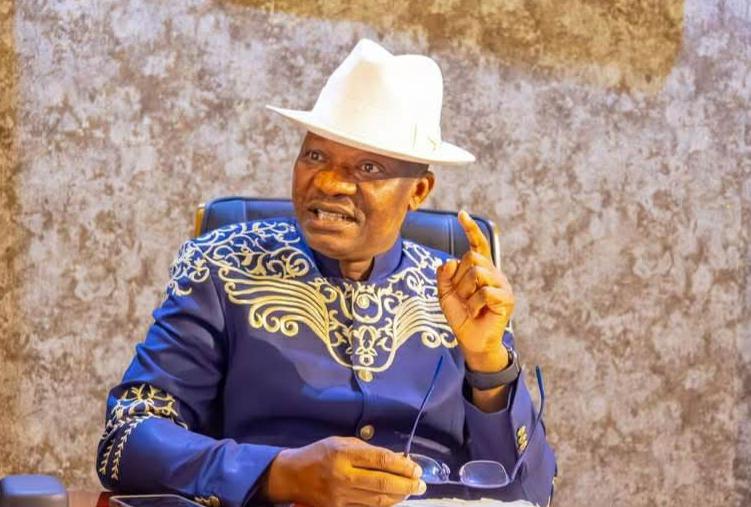News
Oborevwori Deepening Infrastructure, Energy Development in Delta — Aniagwu

The Delta State Commissioner for Works (Rural Roads) and Public Information, Mr. Charles Aniagwu, says the administration of Governor Sheriff Oborevwori is deepening infrastructure development and expanding energy access across the state.
Aniagwu explained that these initiatives are aimed at accelerating economic growth, diversifying the state’s economy, and improving the living standards of Delta residents.
Speaking on The Morning Show on ARISE News on Sunday, Aniagwu said the state’s contributions to national revenue, especially from oil-producing areas, justify the level of federal allocation it receives.
“Delta contributes significantly to the federal purse, and to whom much is given, much is expected,” Aniagwu said. “The reason we are getting what you may call a reasonable share is because we have contributed more reasonably not because the Federal Government suddenly decided to show us love, but because we have demonstrated commitment by securing our coastal communities and creating an enabling environment for oil production.”
He said the Oborevwori administration has taken infrastructure development “to a much higher level,” ensuring that all 25 local government areas benefit from road construction, hospital rehabilitation, and school upgrades.
“Beyond construction, these projects serve as safety nets for our people. They not only inject funds into the local economy but also change the skyline of government facilities in our communities,” he explained.
On efforts to address power supply challenges in parts of Ndokwa nation, Aniagwu clarified that it was largely the Kwale axis that was affected, not the entire Ndokwa region.
He announced that the groundbreaking ceremony for the Kwale Free Trade Zone would hold on Tuesday.
“As we speak, a number of companies have already moved into the Kwale Free Trade Zone, building facilities on nearly 1,000 hectares of land. This will enhance the economic fortunes of the Ndokwa people and help diversify Delta’s economy,” Aniagwu said.
He further disclosed that the state government is extending the 33KV electricity line from Abraka through Ogume to Kwale to ensure that communities in the area are connected to power.
“Even though electricity is largely a private sector responsibility, we intervened because we understand the importance of powering our communities. The work being done will soon energize those areas,” he assured.
Addressing concerns about the Independent Power Project (IPP) in Kwale, Aniagwu explained that the project feeds into the national grid, hence the state cannot directly step it down without federal collaboration.
“Once the power is made available, it doesn’t matter where it comes from as long as it powers homes and businesses. What’s important is that our people are connected, because that drives local enterprise and strengthens security through economic inclusion,” he added.
The commissioner described the Kwale Free Trade Zone as a “game changer” that will attract industries, create jobs, and reduce gas flaring in the region through investments in gas processing.
“Already, companies involved in gas processing are helping to reduce flaring, improving air quality, and converting what was once waste into energy,” he noted.
Aniagwu also attributed the smooth execution of projects in the state to Governor Oborevwori’s harmonious relationship with the Delta State House of Assembly, crediting the governor’s leadership and transparency for the synergy.
“Because the governor was once Speaker, he understands the terrain and works harmoniously with all arms of government. There is equitable distribution of infrastructure across the three senatorial districts, and this transparency has also helped reduce the state’s debt burden,” he said.
Aniagwu affirmed that the Oborevwori administration remains focused on delivering sustainable infrastructure, promoting industrial growth, and enhancing the overall quality of life for Deltans.













